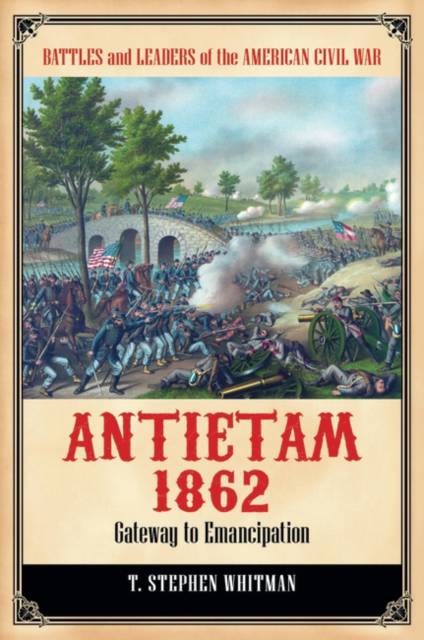
- Retrait gratuit dans votre magasin Club
- 7.000.000 titres dans notre catalogue
- Payer en toute sécurité
- Toujours un magasin près de chez vous
- Retrait gratuit dans votre magasin Club
- 7.000.0000 titres dans notre catalogue
- Payer en toute sécurité
- Toujours un magasin près de chez vous
Description
This book explains how the Battle of Antietam--a conflict that changed nothing militarily--still played a pivotal role in the Civil War by affording Abraham Lincoln an opportunity to announce the emancipation of slaves in states in rebellion.
Antietam 1862: Gateway to Emancipation examines the connections between the Maryland Campaign culminating in the battle of Antietam in 1862 and the drive to emancipate slaves to win the war for the Union. The work's thematic chapters discuss how slaves' resistance to the Confederacy and flight to Union armies influenced Union domestic and diplomatic politics, Confederate military strategy, and above all, the leadership of President Lincoln. By focusing on the complex topics of antislavery politics, diplomacy, and slaves' resistance rather than the specific occurrences on the battlefield, this book shows how shrewd Abraham Lincoln was in assessing the consequences of fighting a civil war about slavery. The concept that slaves' resistance played a part in Lee and Davis's decision to cross the Potomac and invade Maryland is explored, as is the idea that this strategy delayed and ultimately dashed all of the Confederacy's hopes of help from the British.Spécifications
Parties prenantes
- Auteur(s) :
- Editeur:
Contenu
- Nombre de pages :
- 224
- Langue:
- Anglais
- Collection :
Caractéristiques
- EAN:
- 9780313397332
- Date de parution :
- 19-07-12
- Format:
- Livre relié
- Format numérique:
- Genaaid
- Dimensions :
- 155 mm x 236 mm
- Poids :
- 498 g

Les avis
Nous publions uniquement les avis qui respectent les conditions requises. Consultez nos conditions pour les avis.






